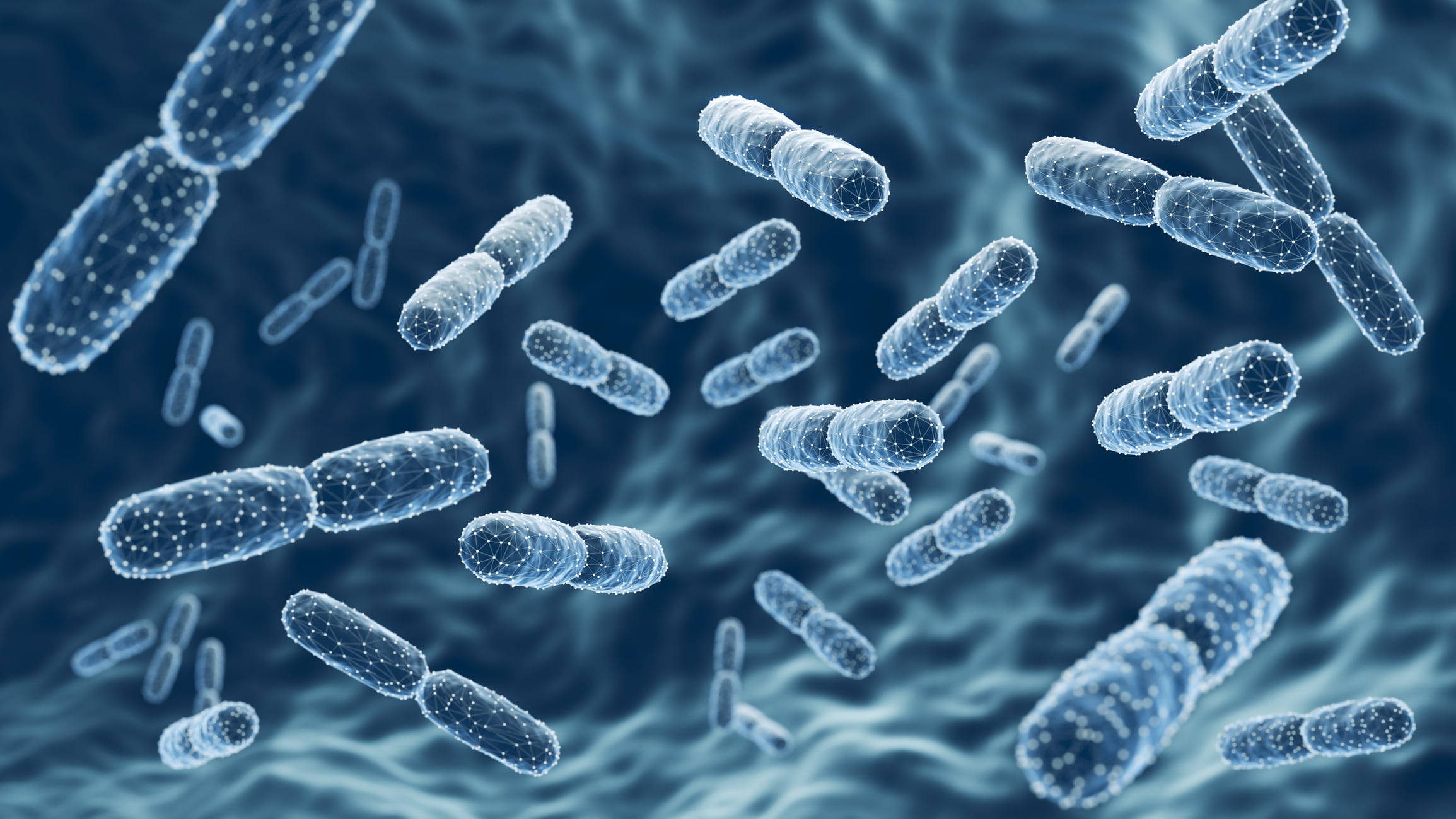End points range from hunger and craving control to visceral fat reduction by prompting the production of short chain fatty acids in the gut, delaying gastric emptying, transferring beneficial plant traits to humans or simply helping users to stay on track by easing the discomforts and avoiding the long-term consequences of pharmaceutical-induced weight loss.
Researchers are also highlighting secondary benefits like lower blood pressure and better sleep, as well as the role of the microbiome in hunger signaling and how gut bacteria signatures may be linked to obesity.
Below a round-up of some of the latest science exploring how supplements might support consumers looking to slim down.
What dietary supplements should GLP-1-RA users be taking?
GLP-1 receptor agonist drug use has become emblematic of current culture, but knowledge and communication about the nutritional needs of an increasing number of patients on these rapid weight loss journeys remains limited.
In a new science review led by dietary supplement retailer GNC, the company’s science and communication team draws from the existing body of literature on obesity, weight loss trials and adiposity-related complications to propose evidence-based supplement strategies to help health care providers support comprehensive obesity treatment. These are focused on long-term health and mitigating the unintended consequences associated with GLP-1 drugs.
“Optimizing nutrient intakes with therapeutic doses of dietary supplements may enhance outcomes when used alongside GLP-1RA, such as increasing nutrient status, retaining lean mass, reducing oxidative stress and inflammation, and improving gastrointestinal health,” they wrote in the journal Obesity Pillars.
In April 2024, GNC became the first major retailer to launch a GLP-1 support program to fill nutritional gaps
Creatine linked to appetite control
The effects of creatine consumption on energy metabolism are well established, but could it affect appetite as well?
Researchers from the Applied Bioenergetics Lab at the University of Novi Sad in Serbia drew on data from a nationally representative U.S. population to investigate the potential relationship between higher dietary creatine and lower levels of leptin, a hormone involved in appetite regulation.
“Higher dietary creatine intake appears to be associated with lower leptin levels, indicating a possible role for creatine in modulating long-term energy balance through mechanisms beyond its well-documented effects on muscle metabolism,” they wrote in the journal Current Nutrition & Food Science.
The study analyzed data from 6,415 men and women in the 1988–1994 National Health and Nutrition Examination Survey, using 24-hour dietary recalls to estimate creatine intake and measuring fasting serum leptin levels.

Novel rice-derived probiotic may offer cardiometabolic benefits
A novel bacterium found in rice may benefit both plant and human health, with a new study highlighting its potential to reduce cholesterol levels and body weight in lab animals.
Scientists from the University of Calcutta and Visva-Bharati in India focused on Phytobacter sp. RSE02, a microorganism found in the internal tissues of seeds (a seed endophyte).
“The discovery of RSE02 represents a significant advancement in understanding the intricate connections between plant and human microbiomes, revealing a promising area for innovative health applications,” they wrote in Scientific Reports.
“The existence of this microbe within the rice seeds suggests a mutualistic relationship with its host and raising important questions about the potential transfer of beneficial traits from plants to human through rice consumption.”
Beyond diversity: Research links functional microbial signatures with obesity
A new functional microbiota index has shown promise for identifying gut bacteria signatures that may be linked to obesity.
Developed by scientists at research institutes from Warsaw and Krakow in Poland, the Gut Microbiome Obesity Index successfully identified subtle functional difference in gut microbiota which were visible even at lower grades of obesity.
The tool differs from other indexes such as the Gut Microbiome Health Index and The Gut Microbiome Wellness Index which use a taxonomy-based approach, offering a new method that harnesses the functional characteristics of the gut microbiome.
“We proved that a single microbial index can be used to distinguish between healthy and obese microbiota and that function-based indices are more useful for this task than taxonomy-based indices,” the authors wrote in Nutrients.

Study identifies different metabolic health roles for prebiotic fibers
Inulin may be better for blood sugar management in overweight or obese people, while fructooligosaccharides (FOS) may help manage homocysteine levels for people with a healthy weight, says a new study.
Data published in BMC Medicine indicated that prebiotics may exert different effects on healthy people and those who are overweight or obese, highlighting the potential of personalized approaches to prebiotic interventions.
“Our findings contribute to the ongoing debate regarding the efficacy of prebiotics in managing metabolic health,” wrote researchers from the University of Reading in the UK and Fun-Poo Biotech, Quantum Hi-Tech Biological Co. and Southern Medical University in China.
“The differential effects of inulin and FOS likely stem from variations in their structural characteristics, fermentation profiles, sourcing and purification processes, potentially mediated by key gut microbes.”
While both classified as prebiotics, inulin and FOS differ in their degree of polymerization, which affects their fermentability and the production of short-chain fatty acids (SCFAs). These differential effects of SCFAs may be responsible for the conflicting views on the therapeutic potential of prebiotics reported in previous literature, the researchers noted.
Black ginger extract shows weight management potential
Research published in the journal Frontiers in Nutrition suggests that a black ginger extract may significantly reduce body fat and abdominal visceral fat in overweight and mildly obese adults.
After 12 weeks of supplementation with Sirtmax, a branded extract Kaempferia parviflora (black ginger), study participants experienced notable reduction in body fat mass specifically in the trunk, android (abdominal) and gynoid (hip/thigh) regions. The extract is produced by Tokiwa Phytochemical Co., Ltd. of Japan and distributed in North America by Maypro.
“These findings suggest that KP extract (Sirtmax) may serve as a safe and effective functional ingredient for body fat reduction and obesity management,” the researchers wrote.
They noted that future long-term studies are needed to confirm sustained efficacy, assess preservation of muscle mass and explore metabolic benefits across diverse populations.
SlimBiome may improve insulin response and help regulate appetite
A patented combination of glucomannan, fructooligosaccharides (FOS) and chromium marketed as SlimBiome by OptiBiotix Health supports satiety and curbs hunger, according to the latest in a series of studies on the weight management ingredient.
According to the findings published in the European Journal of Nutrition, SlimBiome may help to regulate appetite by delaying gastric emptying, improving insulin response and modulating the gut microbiome, as evaluated in a group of 16 normal-weight participants.
“Pharmaceuticals that mimic appetite-suppressing gut hormones are a major advance, but not everyone can tolerate them,” researcher Dr. Michael Patterson of the University of Roehampton said in a press release. “Prebiotics, such as SlimBiome, may stimulate the body’s natural gut hormones, providing a gentler yet effective approach to appetite regulation.”
The research was funded through a research agreement between Roehampton University and Optibiotix Life Sciences, UK.

Kerry Group gauges probiotic potential in the age of GLP-1
As the use of weight loss drugs becomes more widespread, the conversation is evolving from access to adherence through proactive side effect management.
A recent consumer perception study from global taste and nutrition company Kerry Group found that its BC30 Probiotic may help reduce the digestive discomfort commonly associated with GLP-1 medications, helping users to stay on track with their health goals.
“Gastrointestinal issues are among the main drivers of a reduced quality of life and one of the key reasons consumers abandon weight management treatment with GLP-1 medications,” said Alexandra Boelrijik, global RD&A vice president at Kerry. “Although several products in the marketplace claim to support digestive issues, few have necessarily been evaluated and tested by a consumer population of GLP-1 medication users.”
This latest study—framed as a bridge between scientific research and real-world applications— builds on Kerry’s Adapting Appetites research released earlier this year, which identified five distinct types of GLP-1 users to help drive innovation.
The ‘surprising’ peptide that may induce more than weight loss
A peptide that significantly reduces visceral fat in dogs may now do the same for people—and without the loss of lean muscle mass.
That is not the peptide’s only potential benefit, however. Writing in Diabetes/Metabolism Research and Reviews, scientists also reported additional unexpected benefits of Pep19 (DIIADDEPLT), trademarked by Israel-based Proteimax Biotechnology. Not only did it reduce visceral fat by 25% in a clinical trial by the company, but participants also saw a 7-point reduction in systolic blood pressure.
“We had good preclinical rodent and dog data, so the findings on visceral fat and blood pressure were not a surprise,” study co-author Dr. Arnon Krongrad, MD, founding partner and chief strategy officer at Proteimax, told NutraIngredients.
The “real surprise” occurred between the animal experiments and the human clinical trial, Krongrad added. When some people took Pep19 before the trial, they experienced improvements in sleep quality, which encouraged researchers to explore sleep outcomes in the study.
Pediatric probiotic supplements linked to lower obesity in young children
Infants and young children taking probiotic supplements may be at a lower risk of being overweight and obese when they reach preschool, says a new study.
Data published in Frontiers in Nutrition indicated that children ages three and under who consumed supplements formulated with Bifidobacterium longum subsp. infantis R0033, Bifidobacterium bifidum R0071 and Lactobacillus helveticus R0052 had a 12% lower risk of being overweight and an 18% lower risk of obesity in pre-school.
“Supplementation at any time during this early life period appeared to be beneficial in reducing the likelihood of developing overweight or obesity,” the researchers wrote “These findings suggest a possible protective role of early probiotic use, underscoring the need for further longitudinal and experimental studies to confirm its preventive potential.”
Could kiwi and soccer improve sleep in obese children?
New research presents kiwifruit and soccer play as potential strategy to counter childhood obesity, a growing global health concern linked to disrupted sleep patterns, including shorter sleep duration and poorer sleep quality.
Writing in the journal Nutrition and Health, a multi-country team led by researchers in Tunisia reported that four weeks of small-sided soccer game (SSSG) training and daily consumption of kiwifruits positively impacted sleep patterns (bedtime, sleep efficiency, total time in bed, total sleep time, sleep latency).
“When children consistently experience insufficient sleep, disruptions in these hormonal pathways can lead to increased feelings of hunger, reduced satiety and changes in energy expenditure, ultimately increasing susceptibility to weight gain,” they wrote.
“Therefore, prioritizing sufficient sleep for children not only supports their overall health and well-being but also serves as a preventive measure against the development of obesity by maintaining a balanced regulation of appetite and metabolism.”



